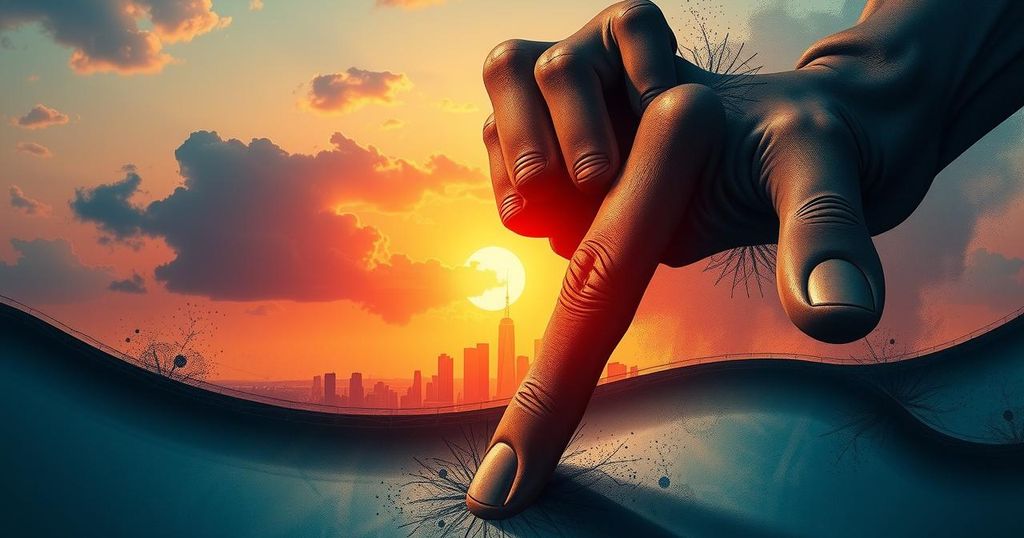M23’s Advance on Kinshasa: Escalating Conflict in DRC

The M23 armed group, backed by Rwanda, has declared its intention to advance on Kinshasa, having captured significant territory including Goma. This escalation in conflict raises humanitarian concerns as international pressure mounts against Rwanda for its role in supporting M23. The DRC government has vowed to respond resolutely to these developments, as the situation continues to deteriorate in the mineral-rich region.
The Rwanda-backed M23 militia has signaled its intent to advance towards Kinshasa, the capital of the Democratic Republic of Congo (DRC), as their forces have taken control of significant territories, including most of Goma in North Kivu province. The ongoing conflict, which involves numerous armed factions, marks a troubling escalation in a region grappling with decades of violence. Rwandan officials claim their main objective is to eliminate groups connected to the 1994 genocide but are facing accusations of exploiting mineral wealth in eastern DRC.
Corneille Nangaa, leader of the coalition that includes M23, declared, “We will continue the march of liberation all the way to Kinshasa,” emphasizing the group’s commitment to stay in Goma until their goals are achieved. He assured the restoration of basic utilities and security in the city while also committing to establishing humanitarian corridors for displaced individuals. In the meantime, President Felix Tshisekedi of the DRC has vowed to intensify military efforts against the perceived terrorist threat posed by M23 and its backers.
The United Nations expressed concern over reliable reports indicating M23’s movement toward Bukavu, highlighting the group’s recent territorial gains in South Kivu province. Local sources reported that the group has captured two districts while the Congolese military has remained silent regarding the situation. Amid recent violent clashes claimed to have resulted in over 100 casualties, residents of Goma voiced their distress, with one individual stating, “We do not want to live under the thumb of these people.”
Calls for international intervention have intensified, with multiple nations, including Angola, China, and members of the European Union, urging Rwanda to withdraw its forces. In light of the ongoing crisis, Belgian authorities have proposed EU sanctions against Rwanda, while the United Kingdom has indicated a potential reassessment of its aid to Kigali. The Southern African Development Community (SADC) plans to hold a special summit to address the conflict as tensions escalate in the region.
The humanitarian situation has worsened considerably due to the fighting, leading to severe shortages of food and water and displacing approximately 500,000 people this month. The African health authority has issued warnings regarding the risks of infectious disease outbreaks amid the conflict. The DRC is highly affluent in natural resources, including gold and cobalt, raising allegations that Rwanda aims to benefit economically from the chaos, an accusation that Kigali vehemently denies.
The conflict in the Democratic Republic of Congo, particularly in the eastern provinces, has a long history exacerbated by ethnic tensions, resource disputes, and the aftermath of regional wars. M23, a rebel group that emerged from earlier conflicts, is often linked to Rwanda, a country with historical ties to events in the DRC, including the genocide of 1994. The region is rich in minerals crucial for global industries, leading to speculation regarding the motives of foreign powers, notably Rwanda, in their involvement with local militant groups. The increase in armed conflict has not only escalated humanitarian challenges but has also threatened regional stability, prompting international concern and calls for intervention.
In summary, the M23 militia’s pledge to march towards Kinshasa marks a critical moment in the ongoing conflict in the DRC. As territorial advances by M23 continue, concerns regarding the humanitarian crisis and the potential for further violence mount. International calls for Rwanda to withdraw its backing of the militia have intensified, highlighting the complex interplay of regional politics and resource exploitation in this fragile conflict. The situation remains dynamic, with implications for both local civilian populations and broader regional stability.
Original Source: www.kten.com








